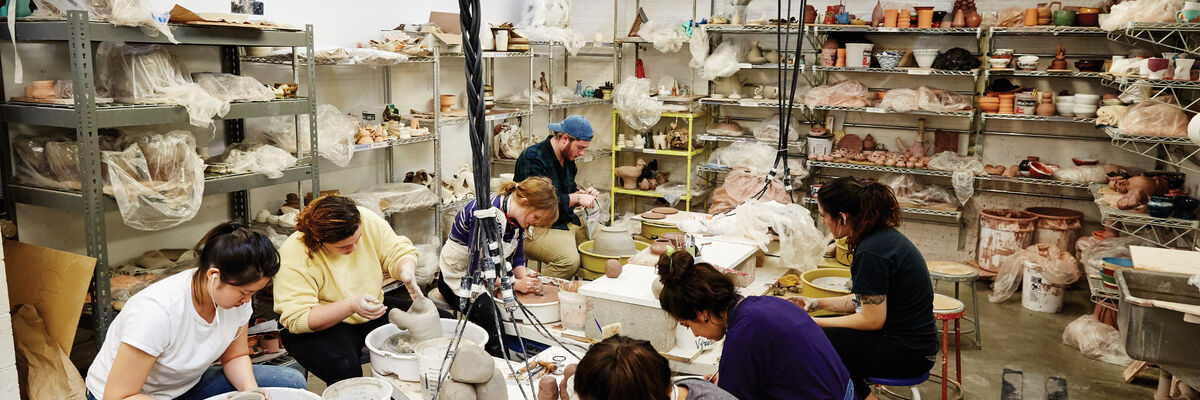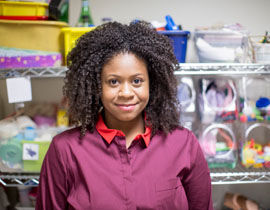
Visual Language

Some of Maia Wheeler's (MA 2007) clients cannot speak, and those who can often find that language fails to express the inner experiences of living on the autism spectrum. Through art, Wheeler gives them a visual language to work with—a new way to get the story out of their bodies and possibly connect with others.
As the Art Therapist at Chicago's Easter Seals Therapeutic School, Wheeler participates in one-on-one and group therapy sessions, often reaching across disciplines to work with speech therapists, occupational therapists, and other clinical staff to help students grow and develop the ability to relate to the outside world.
"Art making can provide a safe distance to reflect. For students who are nonverbal, it can be empowering and also provide highly reflective moments," says Wheeler.
At SAIC, Wheeler learned that material selection is an important part of the art-making process. She puts a great amount of thought into selecting materials for each client to work with—feathers, Play-Doh, paint, or even found objects. "Within the [Master of Arts in Art Therapy] program, there's a class called 'materials.' You basically do a dumpster dive. The curriculum encouraged me to be creative in providing my clients with materials," she says.
A study trip to Europe exploring outsider art also gave Wheeler a global perspective on art therapy that she brings to her job every day. It opened her eyes to the fact that because a work of art is from an untrained artist does not mean it has no value—a fact she often shares with her clients.
Easter Seals is a member of the Do Your P'Art Foundation, which pairs different schools on art projects that deal with a range of contemporary issues. Wheeler's students are often matched with typical peers, and the experience of working side-by-side on an art project helps her students develop social skills.
"I've seen a ton of smiles and laughter and vulnerability," she says. "The strength and commitment my students have to step out of their own box and let someone else into their story—giving voice to people who might not have the words—is the biggest step forward."
In these small victories, Wheeler finds her deepest satisfaction.
"Every day there is a reason to celebrate," she says. "It is a humbling, magical, and unexplainable feeling over and over again."
